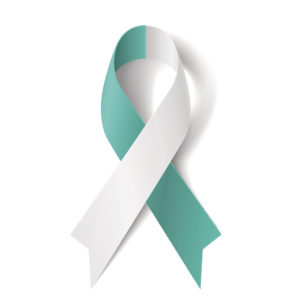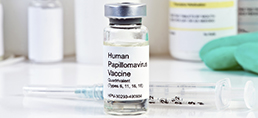
Nobody enjoys a Pap smear, and many women are likely breathing a little easier now that they don’t have to get one every year.
But there’s more to it than comfort, and every woman should know the specifics behind the testing recommendations.
Mae Zakhour, MD, a Spectrum Health Medical Group gynecologic oncologist, recently chatted with Health Beat about the newest guidelines and what they mean for you.
Q: How have the Pap smear guidelines changed?
A: For decades we did an annual pap smear, but recommendations changed in 2012. Women should now start getting a Pap smear at age 21, regardless of sexual history and to repeat testing no more often than every three years, as long as results are normal. It’s no longer the day of annual Pap smears. For women younger than 30, we still recommend a Pap smear only. Between 30 and 65 years of age, options include Pap smear and HPV (human papillomavirus) co-testing every five years or alternatively, a Pap smear alone every three years.
Q: Why did the recommendations change?
A: Several large studies have evaluated the detection rate of cervical dysplasia and cervical cancer with annual Pap testing versus testing less frequently. The studies have found that performing annual Pap smears does not detect a significantly greater number of cervical cancers and pre-cancers, but that more frequent testing can entail more harm by way of patient anxiety, health care costs, and an increased number of cervical procedures.
Q: Do you agree with the change?
A: I do. For women who are used to annual Pap smears, this is a favorable change. When considering the overall risks and benefits of cervical cancer screening, the data largely supports less frequent screening. HPV testing has further added to our ability to interpret screening tests.
Q: What are the risk factors for cervical cancer?
A: The major risk factor is HPV infection with a high-risk subtype. Other risk factors include non-adherence to screening guidelines and smoking. Some studies suggest that the use of birth control pills can also slightly increase risk.
Q: At what age can a woman say goodbye to Pap smears?
A: Most organizations recommend 65 years old in patients who are at low risk. For patients who smoke, are immunocompromised, or who have had recent abnormal Pap smears, we would consider testing beyond 65 years of age.
Q: What are the symptoms of cervical cancer?
A: Common symptoms include abnormal vaginal bleeding, bleeding after intercourse, and sometimes a vaginal discharge. Usually patients do not present with pain or discomfort when diagnosed at an early stage.
Q: What are survival rates for this type of cancer?
A: It depends on the stage at which you are diagnosed. Early stage is very curable and often treated with surgery. We usually talk in terms of five-year survival. For stage 1, five-year survival is 80 to 90-plus percent. For stages 2 and 3, it ranges from 30 to 60 percent. Stage 4 is closer to 15 percent.
Q: Do you still need Pap smears if you’ve had a hysterectomy?
A: Patients who have had a supracervical, or subtotal, hysterectomy still need Pap smears per standard guidelines. For patients who have a total hysterectomy with removal of the cervix and who had normal Pap testing prior to their hysterectomy, no additional screening is indicated. But for women who had abnormal Pap tests prior to hysterectomy, the recommendation is to continue screening with vaginal Pap tests for up to 20 years after hysterectomy.
Q: How can cervical cancer be prevented?
A: Aside from adhering to screening guidelines, the most important way for young women to prevent cervical cancer is to receive the HPV vaccination. There are three vaccines currently available, and it is recommended that both boys and girls be offered this vaccination starting at 9 years of age. However, it can be given up to 26 years of age in women. We are still awaiting long-term population data, but HPV vaccination appears to be the most important method of cervical cancer prevention at this time.
 /a>
/a>
 /a>
/a>
 /a>
/a>